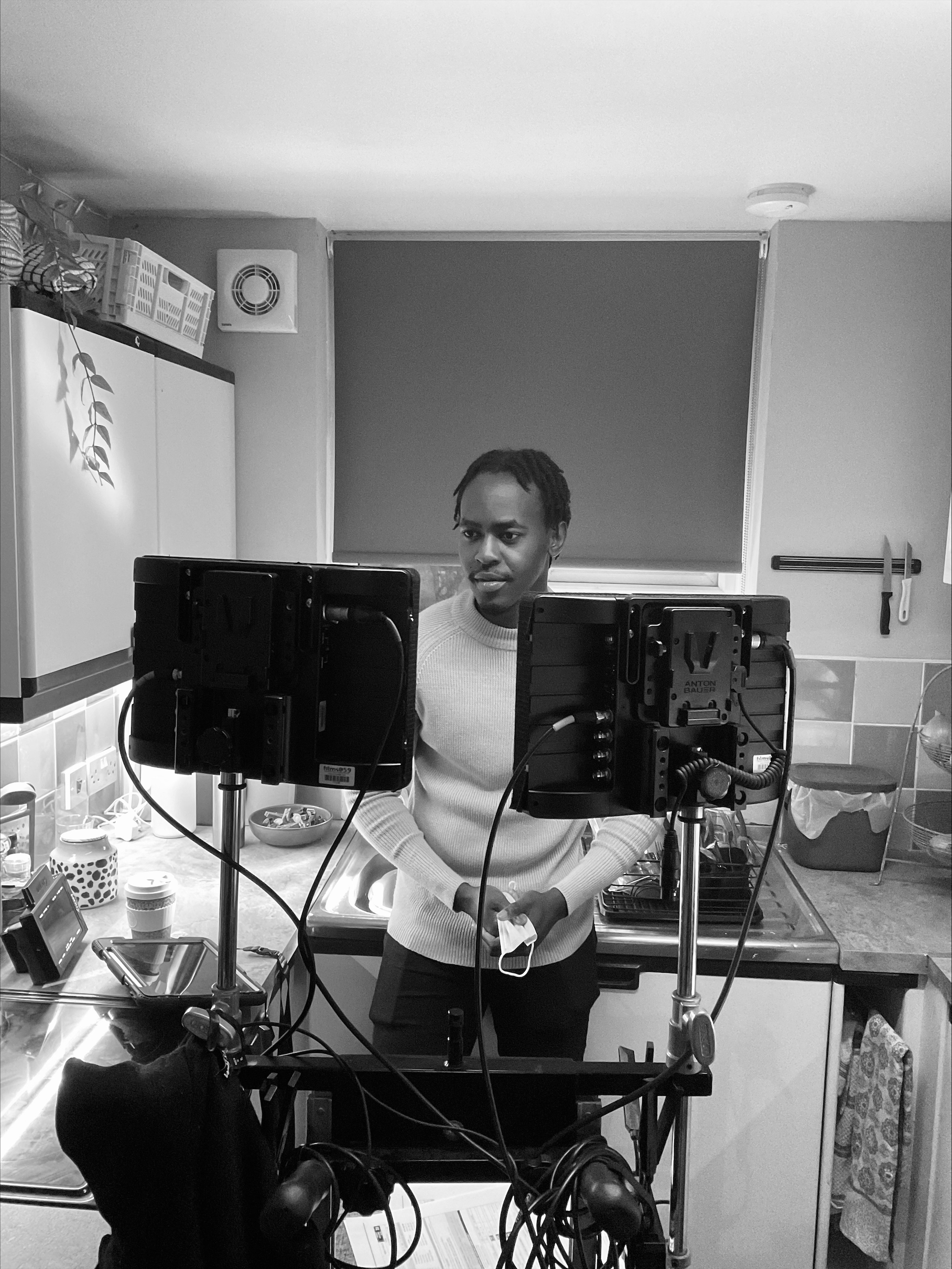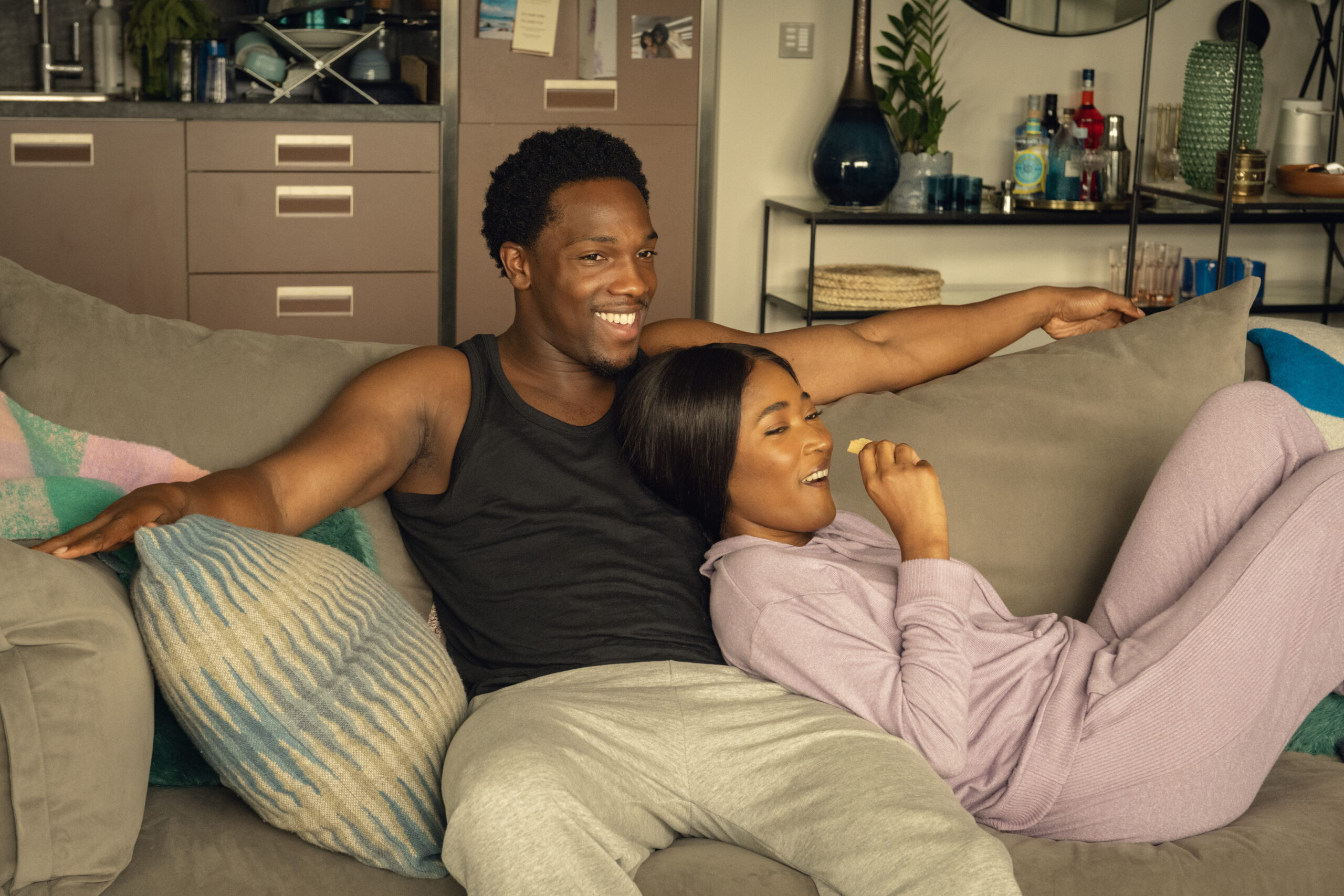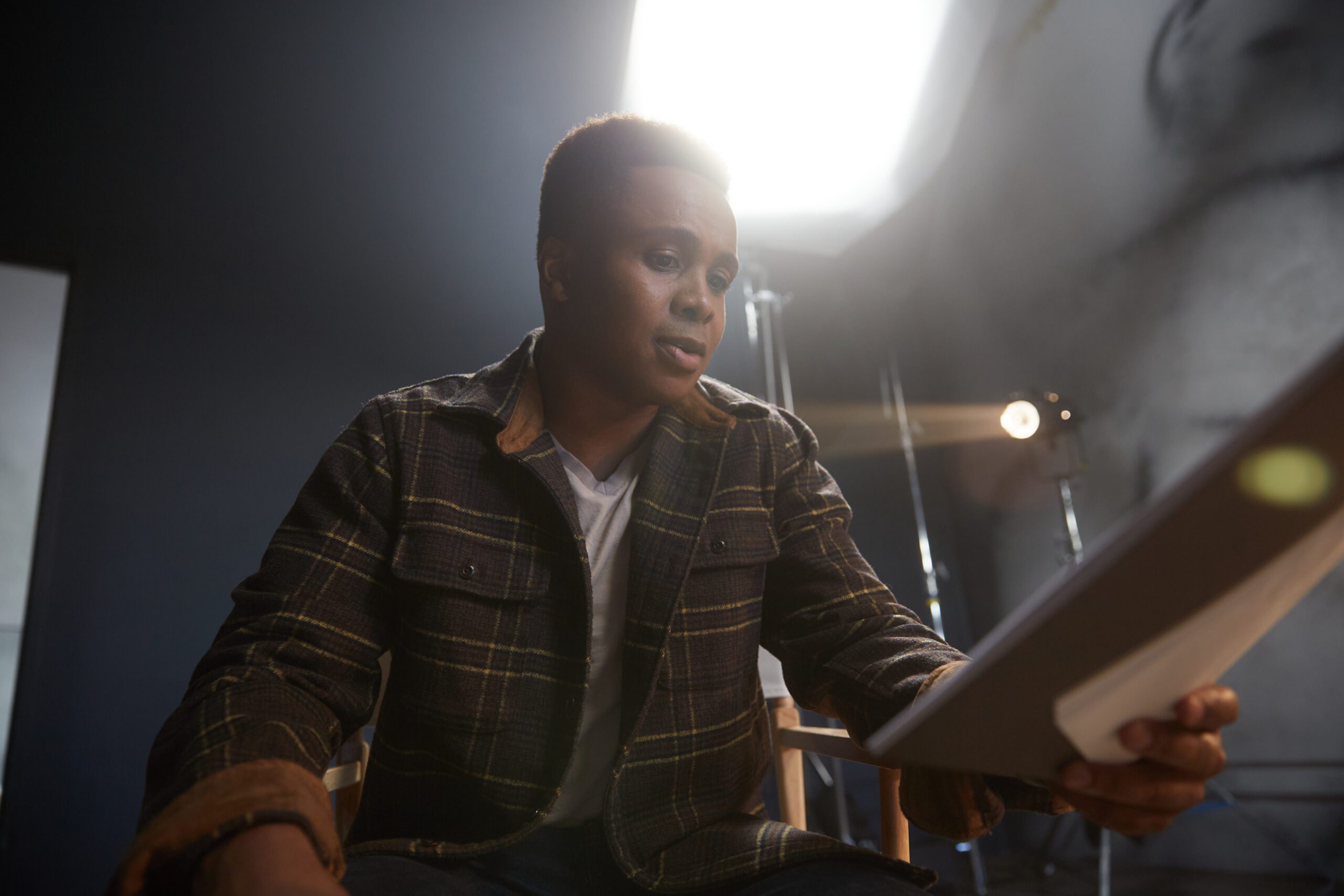‘Supacell’ intimacy coordinator Joshua Okpala discusses his training, working on popular shows like ‘Topboy’, ‘Spent’ and ‘EastEnders’, and his unique insight for performers working on intimate scenes.
Joshua Okpala is a certified intimacy coordinator and a trained actor. There’s a very good chance that you’ve seen some of the popular television shows and films he has worked on in the last five years, including Chivalry (Channel 4), Gangs of London (Season 3) (Sky), A Thousand Blows (Disney+), The Decameron (Netflix), Grime Kids (BBC), The Brutalist (Lionsgate), The Weekend Away (Netflix), Eric (Netflix), The Witcher (Season 3) (Netflix), I Came By (Netflix), Great Expectations (BBC, FX, Hulu), Sanditon (ITV) and Somewhere Boy (Channel 4).
An alumnus of The American Academy of Dramatic Arts in New York, Joshua completed his training with Intimacy for Stage and Screen under the guidance of the highly regarded intimacy coordinator, Lizzy Talbot. He has an incredible roster of projects under his belt, is a firm believer in advocating for the actors he works with and has worked internationally, travelling to Hungary, Senegal, Italy, Greece and Croatia.
As a proud member of BAFTA and Bectu, he has also led workshops at drama schools and film festivals and was one of the first Black intimacy coordinators in the UK. We had the privilege to speak to Joshua about his experience as an intimacy coordinator, how to navigate discussions around intimate scenes, his tips for performers working with intimacy coordinators for the first time and how important it is to build a confidential and safe environment for the actors he works with. Here’s what he shared:
Hi Josh! What made you decide to become an intimacy coordinator?
Coming from an acting and movement background, I always anticipated encountering scenes with some level of intimacy, and eventually, I did. At that time, there were no intimacy coordinators or anyone to consult before stepping into these scenes. As I continued in my career, I actively sought information about who facilitates the creation of intimate scenes, who advocates for the actors, and who ensures that boundaries are respected.
Initially, I pursued this knowledge to better equip myself as an actor, but in the process, I found myself drawn to training for the role of an intimacy coordinator. Understanding how vulnerable actors can feel in these situations, I take pride in making the process more comfortable and secure for them.
What sort of training did you go through to become an intimacy coordinator?
I trained with Intimacy for Stage and Screen under the guidance of the wonderful Lizzy Talbot. After completing the prerequisite training, I embarked on the journey to becoming an intimacy coordinator. The training covered a wide range of topics, including the theory and historical origins of intimacy coordination, as well as its practical application in real-world situations.
I also had the privilege of shadowing Lizzy, which was invaluable to my learning process. During this time, I was introduced to the global community of intimacy coordinators, where I engaged with many practitioners, absorbing their knowledge and learning from their experiences.
You are also a trained actor. How does this help you to understand the needs of the actors you’re working with?
Intimacy coordinators come from diverse backgrounds, each bringing unique experiences to the role. As an actor, I’ve been in those situations where you meet your scene partner for the first time on set, only to discover that you have an intimate scene together.
While every actor has different needs, my own experiences give me a deeper insight into how they might be feeling. This background allows me to better navigate discussions about these scenes and ensure that actors feel supported and understood.
What sort of problems can intimacy coordinators help performers with, and when should performers go to them with their concerns?
As intimacy coordinators, we can assist performers with a wide range of concerns related to intimate scenes. Each performer has a unique relationship with these types of scenes, so the issues that arise can vary widely.
My priority is to address each concern thoughtfully and find solutions that enhance the performer’s comfort. We encourage open dialogue and early conversations to discuss the scene, where performers can share their thoughts. However, performers are also welcome to reach out at any point when they feel ready to voice their concerns.
You‘ve worked all over the world. Are there any differences between working as an intimacy coordinator abroad compared to the UK?
There are differences between productions, whether abroad or in the UK. As intimacy coordinators, we have a standard process and workflow that we introduce to productions early on. However, each production has its own unique way of operating. In some countries, the role of an intimacy coordinator may not be as fully integrated into the production process as it is in others. In these cases, while we can advise on best practices, we may need to adapt our approach to fit the specific production environment whilst ensuring that our role as an intimacy coordinator is not compromised.
Are you typically the only intimacy coordinator involved in a production, or is it a collaborative process?
You would rarely have more than two on a set at any given time. This is usually where there is a large crowd scene. A show can have different intimacy coordinators working on different blocks on the same show.
You’ve worked on so many brilliant shows, but a most notable and recent one being the Netflix series ‘Supacell’. Are there any memorable experiences or moments you’re proud of from that production?
Each show holds a special place in my heart, and I often keep the lanyard from each production as a kind of personal medal. Supacell stands out not just for its compelling story and wonderful cast and crew, but also for the representation both in front of and behind the camera. In many on-set situations, there’s a noticeable lack of diversity, and I often find myself as the only person who looks like me. However, Supacell and some of the other shows I’ve worked on made significant efforts to have a diverse crew, which is always encouraging to see in this industry.

Some performers may not feel comfortable raising their concerns about intimate scenes for fear of being a nuisance and not getting work in the future. Is there any advice or reassurance you can offer to performers like this?
Any concern you have is valued and meaningful. I always reassure actors that I am there to advocate for them. You’re not a nuisance; you’re a person with valid feelings and thoughts that deserve to be expressed safely, without fear of being vilified or persecuted. We have your back and are here to help you express, mediate, and resolve any concerns with the production.
With this in mind, what’s a key piece of advice you can give actors about what to expect when working with an intimacy coordinator?
Every actor is different and has their own way of working, so it’s important to discuss your preferences with the intimacy coordinator you’re working with. Our goal is to make you as comfortable as possible, we need your cooperation to achieve that.
Remember: You can request an intimacy coordinator to be involved if one hasn’t been provided by the production from the start.
What about low-budget productions that can’t afford an intimacy coordinator? How can they ensure that safety still exists on set?
For low-budget productions, it’s still essential to engage an intimacy coordinator or someone in training who can share their expertise with the team. Alternatively, producers, directors, and other key members can attend workshops to learn best practices. Actors can also benefit from these workshops, equipping them with the knowledge to advocate for themselves on set.
You’ve worked extensively in television, film and even on a commercial for Starling Bank. What has been the biggest challenge you’ve faced on a project so far, and how did you overcome it?
It can be a challenge when working on a production where the role of intimacy coordinator is less familiar, which means that in addition to working with the actors, I also need to facilitate an understanding of the value of what we do to the production as a whole. I am pleased to say that this is becoming less of an issue now that the role is becoming better known.
Finally, what’s next for you?
The sky’s the limit! After five years as an intimacy coordinator, I’m grateful for the opportunity to advocate for and support the continual development of best practices on set.
However, no one is defined by just one role. Being an intimacy coordinator is just one colour in the spectrum of talents and interests I have to share with the world.
Thank you Joshua for sharing your advice and expertise as an intimacy coordinator!
Supacell is available to watch on Netflix now.
Take a look at our website for more interviews with casting directors and agents, including ‘Bridgerton’ intimacy coordinator, Lizzy Talbot.



















